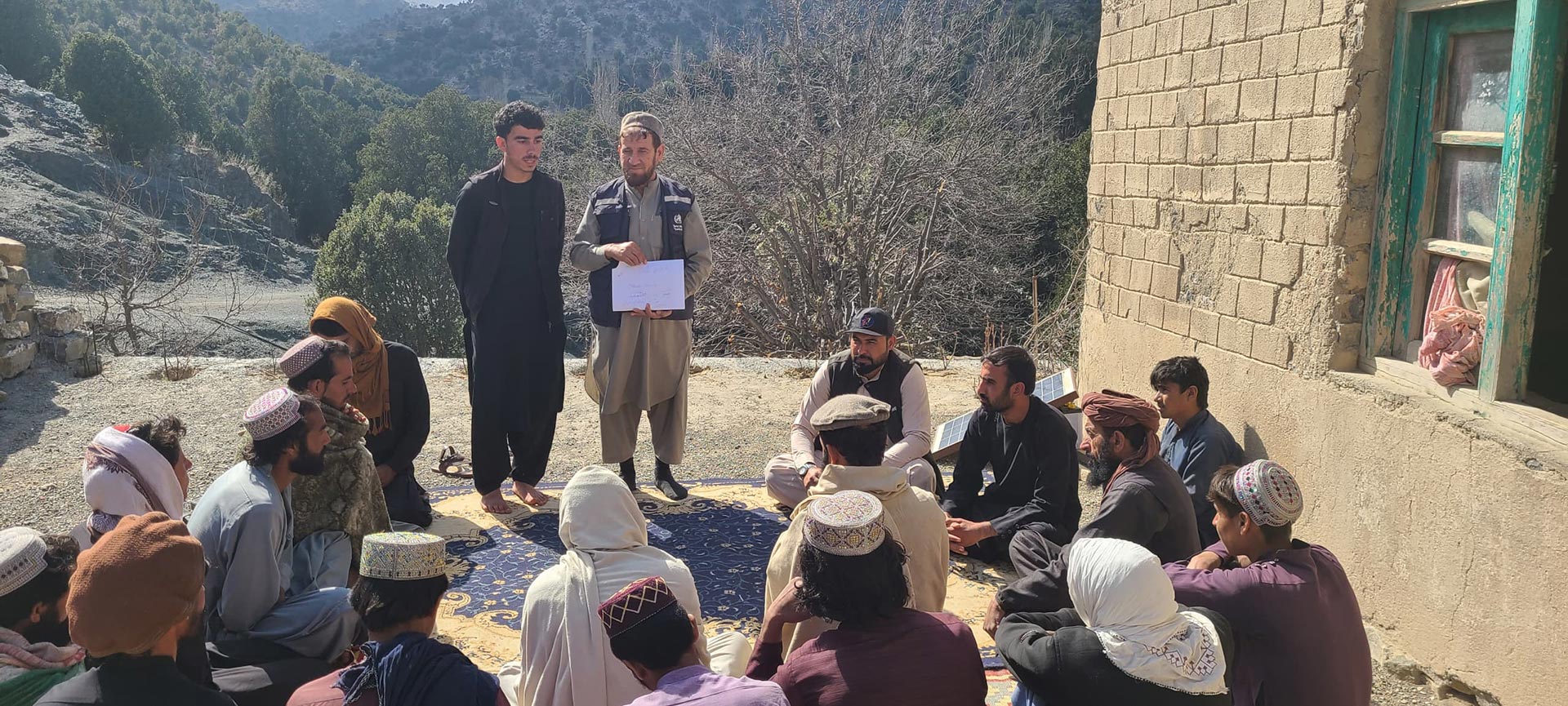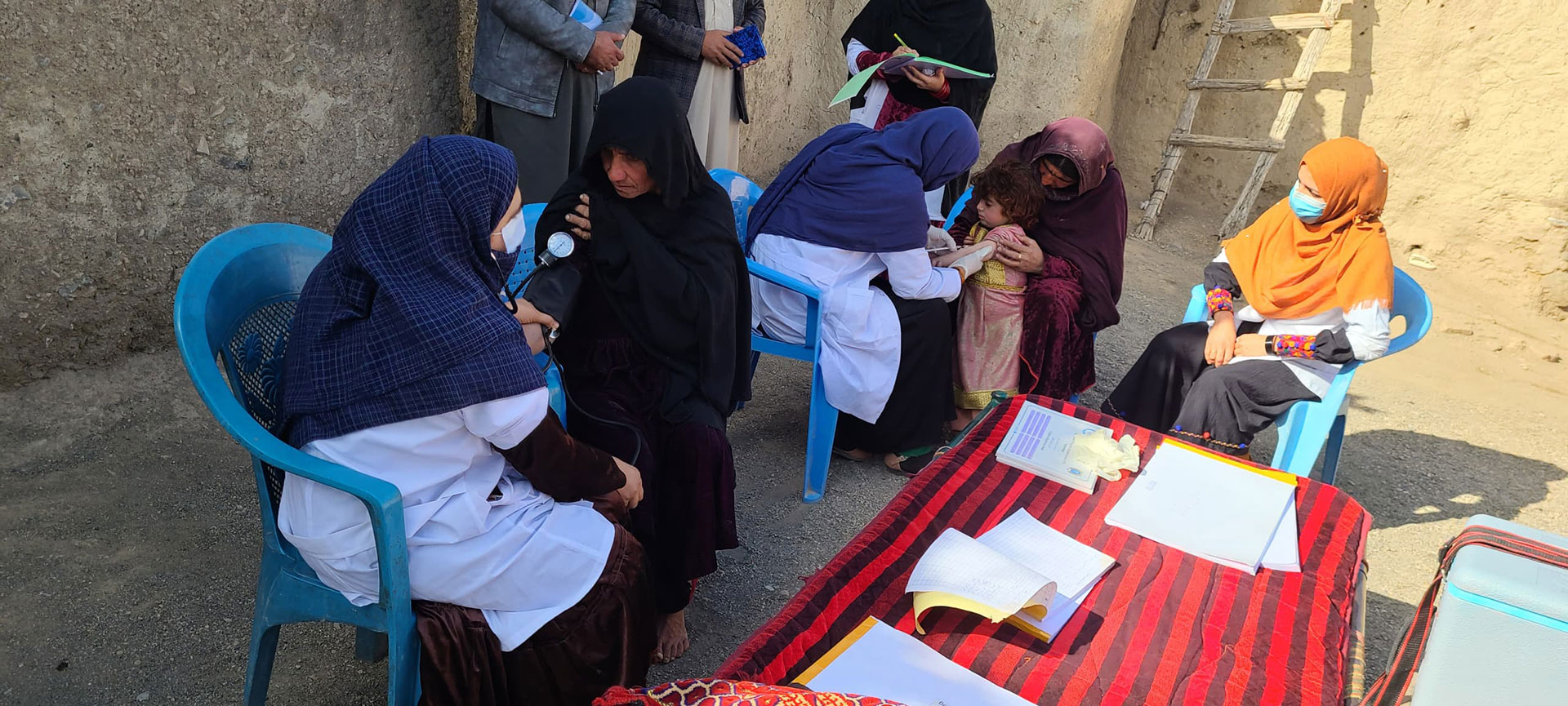 Residents of a remote village of Khost province gather to discuss health topics with community mobilizers. Photo credit: WHO Social Mobilizer
Residents of a remote village of Khost province gather to discuss health topics with community mobilizers. Photo credit: WHO Social Mobilizer
07 July 2025, Kabul, Afghanistan – For the inhabitants of Kaskay, a remote village deep in the mountains of Gurbaz district in Khost province, seeing a doctor or accessing vaccinations for children often felt out of reach.
That changed on 12 December 2024 when a team from the World Health Organization (WHO)-supported Zanshora Sub-Centre arrived in the village to help remote communities access health care services.
“When we arrived we were warmly welcomed,” said WHO-supported community mobilizer Rahmanullah Atal. “The villagers, especially the elders, showed their appreciation by the way they greeted us. It was clear that trust was growing and the health needs of the village residents mounting.”
Rahmanullah gathered a group of men and spoke about vaccines, why they’re important, how they work and why some side effects like a mild fever are a good sign. Many of the villagers said they used to think vaccines were harmful but that listening to someone with whom they could relate had made a real difference.
 The team’s female health workers – midwives Aziza and Kochay and vaccinator Zarghona – visit homes to provide health care to women and children. Photo credit: WHO Social Mobilizer
The team’s female health workers – midwives Aziza and Kochay and vaccinator Zarghona – visit homes to provide health care to women and children. Photo credit: WHO Social Mobilizer
The team’s female health workers – midwives Aziza and Kochay and vaccinator Zarghona – quietly visited homes to provide health care to women. The private and respectful health services they offered included antenatal and postnatal check-ups and family planning advice. Meanwhile, the team’s male vaccinator Naqibullah administered oral polio drops to children.
By the end of the day the team had provided outpatient consultations to 65 people. Eleven pregnant women received antenatal care, 2 women received postnatal check-ups and 6 accessed family planning services. Ten children were vaccinated with pentavalent vaccine, 3 received the measles vaccine and 129 children under 5 were given oral polio drops.
“We didn’t know how important these vaccines were. Now we understand and we will make sure our children stay protected,” one father told the team as the day drew to a close.
“No community should be left behind,” said WHO Representative in Afghanistan Dr Edwin Ceniza Salvador. “It is our responsibility to ensure that even the most remote families have access to lifesaving health services. When we reach people with care we earn their trust and help them build healthier futures.”
With support from donors and partners, WHO Afghanistan is committed to reaching many more villages like Kaskay, helping families live healthier and safer lives.
For more information, please contact:
Mariam Amiry, RCCE Officer WHO – Kabul, Afghanistan, This e-mail address is being protected from spambots. You need JavaScript enabled to view it



